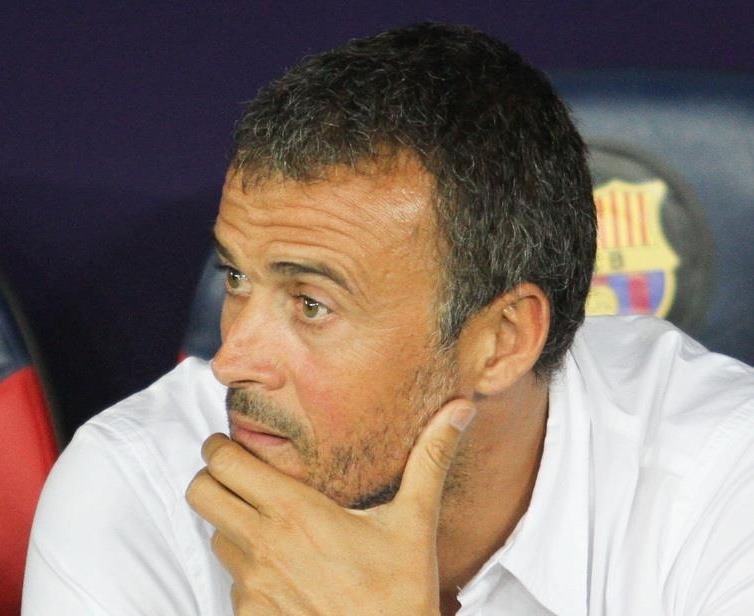La Roja have found their fizz, but will the cork pop?
After frustrating draws against Sweden and Poland, Spanish National Team manager Luis Enrique described his side as a “bottle of cava with the cork about to pop”. Despite their dominance in possession and chances created across both matches, Enrique’s side had been unable to make their superiority count against these resilient opponents.
Several questions were asked, especially about the quality of finishing, but also about the patient (or as some would argue, laboured) build up at the core of the Spanish style of play. This left Spain positioned in third behind Sweden and Slovakia with one game to play.
Even though Slovakia appeared to run out of steam, Spain were exceptional in their final group game and were good value for their 5-0 victory. After Alvaro Morata’s early penalty miss, La Roja continued to open up the Slovakia defence with ease. Upon being gifted a lucky opener through a confused Dubravka’s mistimed punch, the Spanish didn’t let up and cruised to a comfortable victory led by returning captain Sergio Busquets.
Luis Enrique’s Spain favour a Guardiola-esque possession game. They aim to dominate possession, and hence control the game’s tempo and patiently wait for openings in which to create chances. In addition, they try to press hard upon losing the ball to regain possession and sustain attacks.
This style of play has received criticism: Dutch ex-professional Rafael Van Der Vaart labelled it as “horrible” and BBC pundit Rio Ferdinand described them as “passive”. Yet, to deviate from this philosophy would be insanity.
Spain are best suited to this style as they have an abundance of technically proficient, yet somewhat physically limited footballers. They simply don’t have the pace and power to excel at fast transitions like France or England.
There are many ways to win a football match, and a low tempo possession game is certainly a legitimate gameplan. Last season, Manchester City had the Premier League’s statistically slowest attacks and ended up top of the pile.
Spain are among the best attacking sides in the tournament
Many commentators have called for the involvement of the direct and physical Adama Traore, but his form for Wolves doesn’t merit his involvement in matches and certainly doesn’t merit a complete departure from their natural playing style.
Despite the heavy criticism, the underlying statistics suggest that Enrique’s Spain are among the best attacking sides in the tournament. They have the highest average possession in the tournament (68.7%), the most attacks (129), and the joint most big chances created with the Netherlands (14). As a result, they have the highest number of expected goals based on the quality of their chances (9.39). Even after the first two matches in which they only scored once, Spain’s expected goals total was 5.83.
Chance creation is, therefore, clearly not an issue. However, a couple of small tweaks could add more verve going forward. Morata’s goal against Poland came directly through isolating impressive inside forward Gerard Moreno one-on-one with Polish left wing back Tymoteusz Puchacz. If they can patiently work the ball to isolate Moreno or other skillful widemen one-on-one with their opposing fullback then this could bear further fruit.
In addition, Spain’s second goal against Slovakia was the result of the inventive Pedri picking out Moreno’s direct run through the packed Slovakian penalty box. If Pedri can continue to pop up in dangerous areas, then the excellent movement through tight spaces of both Morata and Moreno can get the best out of Pedri’s creativity, with the 18-year-old looking a star in the making for La Roja.
The clear weakness of Spain is in chance conversion, not chance creation. Morata excels in linking play with the midfield, dropping deep to create space for Spain’s inside forwards, while his movement in tight spaces to get into goalscoring positions is exemplary.
This movement in the penalty area has led to a total 3.22 expected goals for himself, the second highest in the tournament behind Cristiano Ronaldo (4.90). Though unlike Ronaldo who has scored five goals, Morata has only found the net once.
On paper, there should be enough goals in this Spanish side
On paper, there should be enough goals in this Spanish side. Gerard Moreno tallied up 30 goals in all competitions for Villarreal last season. Morata scored 20 and widemen Torres, Olmo, and Sarabia accumulated 13, seven, and seven, respectively for their clubs.
While Moreno has the record of a naturally clinical finisher, scoring 23 for Villarreal in La Liga last season and only missing ten big chances, Morata is far from it. His last league season resulted in 11 goals and 15 big chances missed.
Through good movement, design, or chance, most of Spain’s big chances have fallen to Morata who has failed to deliver in front of goal. Despite registering two assists and looking dangerous, the usually clinical Moreno has also failed to step up in front of goal at Euro 2020 and has failed to score from his 2.25 expected goals.
Defensively, Spain have largely performed well and have only conceded once despite Poland and Sweden creating a few dangerous breakaways. Their total expected goals conceded of 2.80 puts them amongst the top handful of sides, yet a far cry from the tournament’s best defence of Italy with 1.39. The acquisition of Aymeric Laporte has been crucial, yet there are still tougher tests to come for La Roja’s newly assembled backline, such as potential quarter final opponents, France, whose greatest strength is in rapid transition.
Despite early signs of panic, Spain appear to be bubbling along nicely at Euro 2020. La Roja have displayed some crisp and refreshing passing and are developing a creative fizz to their forward play. Whether their cork will fully pop will depend on the quality of their finishing and whether their defence can stand up to counter attacks against Europe’s elite.

Comments